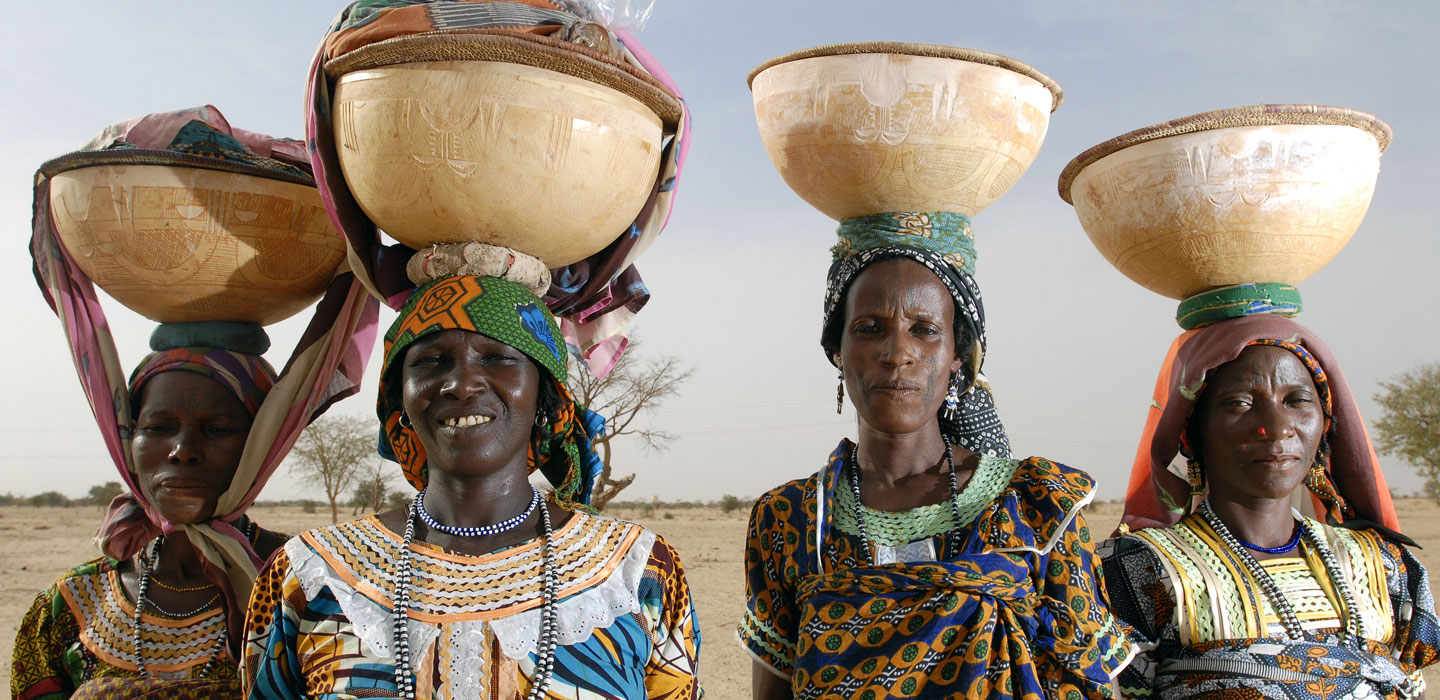Tools and guidelines
الأدوات والإرشادات

الأدوات والإرشادات
عرض القائمة
Search Results Filters
نتائج البحث
How to do note: Strengthen community-based natural resource management organizations
Congo: Country Technical Notes on Indigenous Peoples’ Issues
The indigenous population of the Republic of Congo (RC) include the Baka, Mbendjele, Mikaya, Luma, Gyeli, Twa and Babongo peoples. Depending on sources, these peoples represent a small minority of 1.25 to 10 percent of RC’s estimated population of 4.4 million, primarily of Bantu origin.
Lessons learned: Commodity value chain development projects
Toolkit: Lines of credit
دراسة حالة المنھجیة الأسریة التحولیة، إثیوبیا
دراسة حالة المؤتمر المتنقل للرجال، كینیا
Lessons Learned: Loan Guarantee Funds
How to do note: Loan Guarantee Funds
This How To Do Note highlights the rationale for using Loan Guarantee Funds, focusing on different types of guarantee arrangements, as well as their strengths, weaknesses and opportunities. It also summarizes global experience with LGFs.
The Note provides country programme management teams, programme design teams, implementation teams, and other practitioners and users with evidence-based good practices and guidelines so that they can design and implement more effective and contextually appropriate guarantees.
Lessons learned: Community-based financial organizations
Community-based financial organizations (CBFOs) are often the only institutions available to provide basic financial services to the rural poor, especially in remote areas with inadequate infrastructure.
CBFOs can be organized in many different ways. This knowledge document elaborates on the lessons learned in designing and implementing support for a CBFO.
How to do note - Key performance indicators and performance-based agreements
This how to do note addresses KPIs and PBAs at the level of partnering financial institutions. In this context, key performance targets are included in various documents, including strategic plans, business plans and possibly budgets at different levels.
Also, they can be used as an important support instrument for results-based management.
How to do note: Lines of credit
implementation and scaling up.
Lessons learned: Lines of credit
This Lessons Learned note provides practical suggestions and guidelines to CPMs and the country programme management to help them design and implement programmes and projects.
The purpose of this guidance is to provide CPMTs with some observations based on lessons learned from IFAD and other donors’ projects, as well as from the World Bank Operations Evaluation Department (OED 2006) LOC review that may help in the design of LOCs.
How to do note: Support community-based financial organizations
Toolkit: Loan guarantee funds
Toolkit: Community-based financial organizations
Toolkit: Key performance indicators and performance-based agreements
دراسة حالة الإرشاد الأسري، أوغندا
مجموعة الأدوات: المنهجیات الأسریة: تسخیر إمكانیات الأسرة على التغییر
Toolkit: Commodity value chain development projects
Strong links to markets for poor rural producers are essential to increasing agricultural income, generating economic growth in rural areas and reducing hunger and poverty. Every product that is sold locally, nationally or internationally is often part of an agricultural value chain (VC). From a development perspective, VCs are one of the instruments through which market forces can be harnessed to benefit poor rural women and men – not just producers, but wage earners, service providers and others.
How to do note: Participatory land-use planning
How to do note: Land tenure in IFAD project design
This How To Do Note provides guidance on how to carry out a land assessment at the project design stage.
Through this assessment, it will be possible to identify key land tenure issues in the project area and to indicate how they can be resolved through project activities and interventions.
How to do note: Land tenure in IFAD country strategies (RB-COSOPs)
Lessons learned: Pastoralism land rights and tenure
This note highlights lessons learned on pastoralism land rights and tenure aiming to inform the design and implementation of country strategies and projects from the point of view of land tenure issues faced by pastoralists.
It also provides examples of how IFAD has dealt with some of these issues through its programmes and projects.
Toolkit: Land tenure in IFAD-financed operations
Lessons learned: Supporting rural young people in IFAD projects
IFAD has always adopted a proactive approach to the targeting of poor rural people of all ages in order to reduce the social and economic inequalities that help generate and perpetuate poverty.
Lessons learned: Key performance indicators and performance-based agreements
regular and consistent manner. This note discusses the use of KPIs as well as the challenges associated with it. This discussion is followed by a review of the lessons learned by IFAD and other organizations, and concludes with strategic recommendations for follow-up.
دراسة حالة نظام تعلّم العمل في مجال التمایز بین الجنسین في غانا، ونیجیریا، ورواندا، وسیرالیون، وأوغندا
تم إعداد منهجیة نظام تعلّم العمل في مجال التمایز بین الجنسین في إطار برنامج تعمیم وتشبیك تمكین المرأة التابع . لمؤسسة أوكسفام نوفیب في عام 2008 ، بالعمل مع شركاء محلیین وl وقد اختبرت أوكسفام نوفيب مع شركائها استخدام هذه المنهجية في مجال تنمية سلاسل القيمة بفضل منحة صغيرة من الصندوق (2009- 2011). كما نشرت أوكسفام نوفیب هذه المنهجیة في نیجیریا، ورواندا، وأوغندا بالعمل مع شركاء محلیین، وبالاستفادة من منحة كبيرة من الصندوق (2011-2014) وفي غیرها من البلدان بتمویل مشترك من جهات مانحة أخرى.
How to do note: Commodity value chain development projects
Lessons learned: Youth land rights and tenure
This note aims to inform the design and implementation of results-based country strategic opportunities programmes (RB-COSOPs) and projects by describing how youth are affected by insecurity of tenure and how such issues have been dealt with. It should be used at strategy, design and implementation stages.
The note explains the issues related to youth and land tenure and how they have been addressed in IFAD and other projects and programmes.